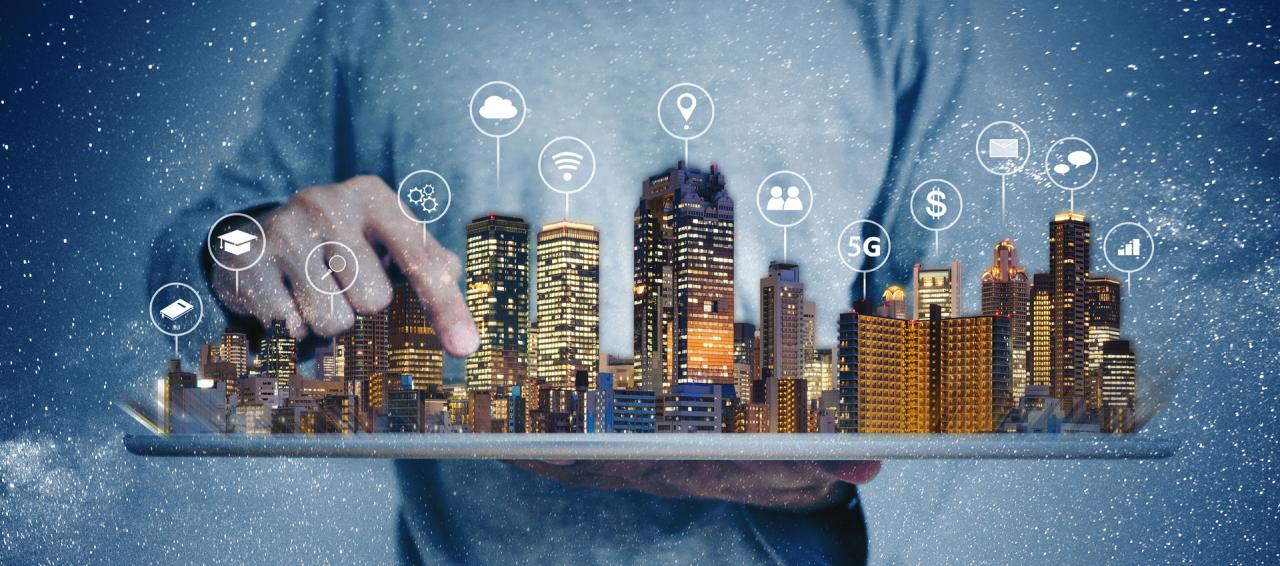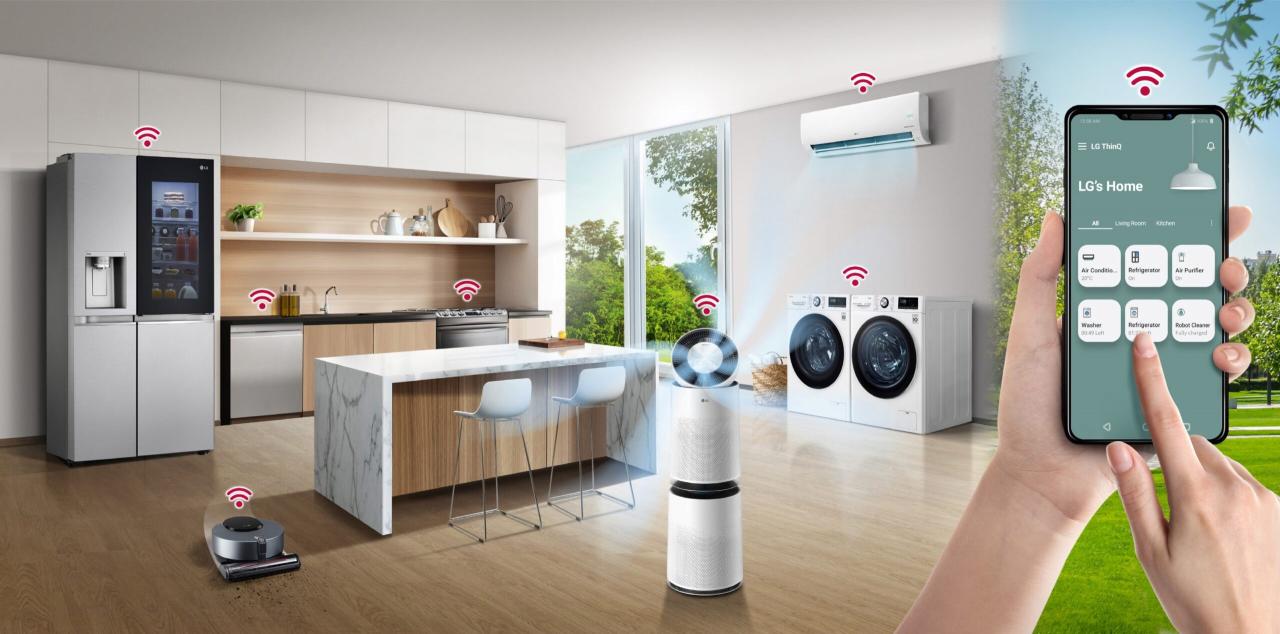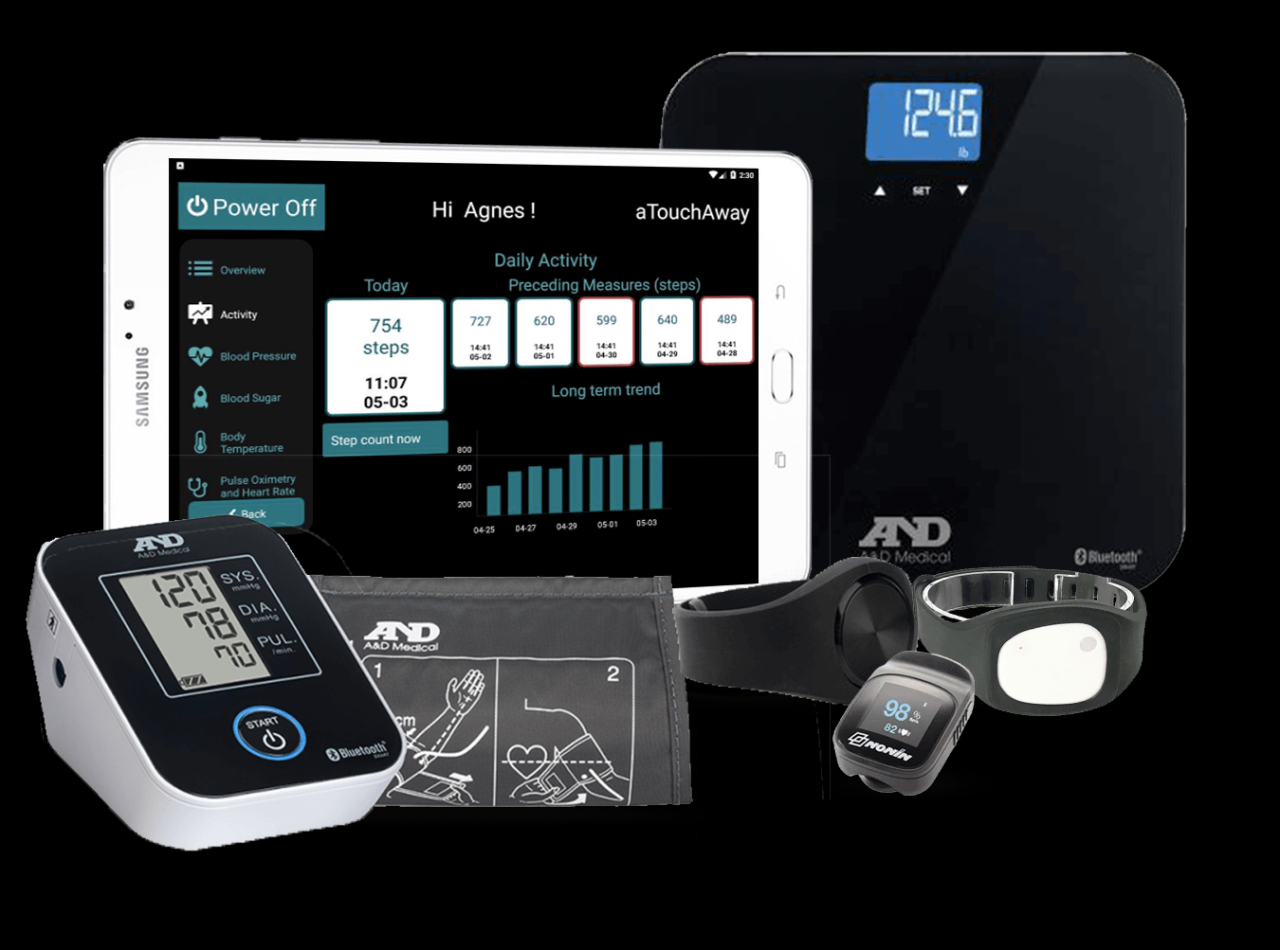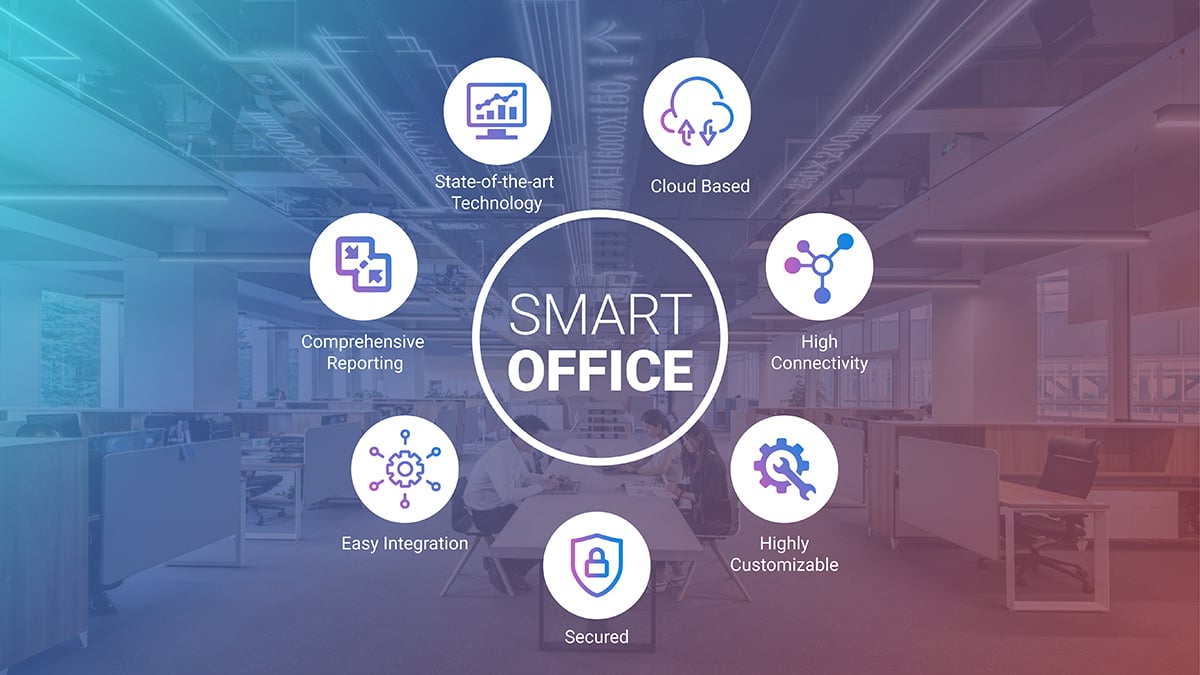Smart water management systems revolutionize the way we use and conserve water, offering a glimpse into a future where efficiency and sustainability go hand in hand. By harnessing the power of technology, these systems pave the way for a more intelligent and proactive approach to water management, ensuring a brighter tomorrow for generations to come.
Importance of Smart Water Management Systems
Implementing smart water management systems is crucial in today’s world to ensure efficient use of water resources and sustainable practices. By incorporating advanced technologies and data analytics, these systems offer a wide range of benefits compared to traditional methods of water management.
Key Benefits of Smart Technologies for Water Management
- Real-time Monitoring: Smart water management systems allow for continuous monitoring of water usage, leak detection, and system performance. This helps in identifying issues promptly and optimizing water distribution.
- Resource Optimization: With the help of sensors and automation, smart systems enable precise control over water flow, pressure, and distribution, leading to reduced wastage and improved efficiency.
- Data-driven Decisions: By collecting and analyzing data on water consumption patterns and trends, smart technologies enable informed decision-making for better resource management and planning.
- Cost Savings: The efficiency and accuracy offered by smart water management systems result in cost savings through reduced water bills, maintenance expenses, and operational costs.
Comparison with Traditional Water Management Methods
- Traditional methods often rely on manual readings and periodic checks, which can lead to delays in detecting leaks or inefficiencies. Smart systems, on the other hand, provide real-time data for proactive management.
- Smart technologies offer predictive maintenance capabilities, allowing for preemptive actions to prevent breakdowns and reduce repair costs, which are not typically available in traditional systems.
- Integration with IoT and cloud-based platforms enables remote monitoring and control of water systems, enhancing operational efficiency and responsiveness compared to conventional methods.
Components of Smart Water Management Systems
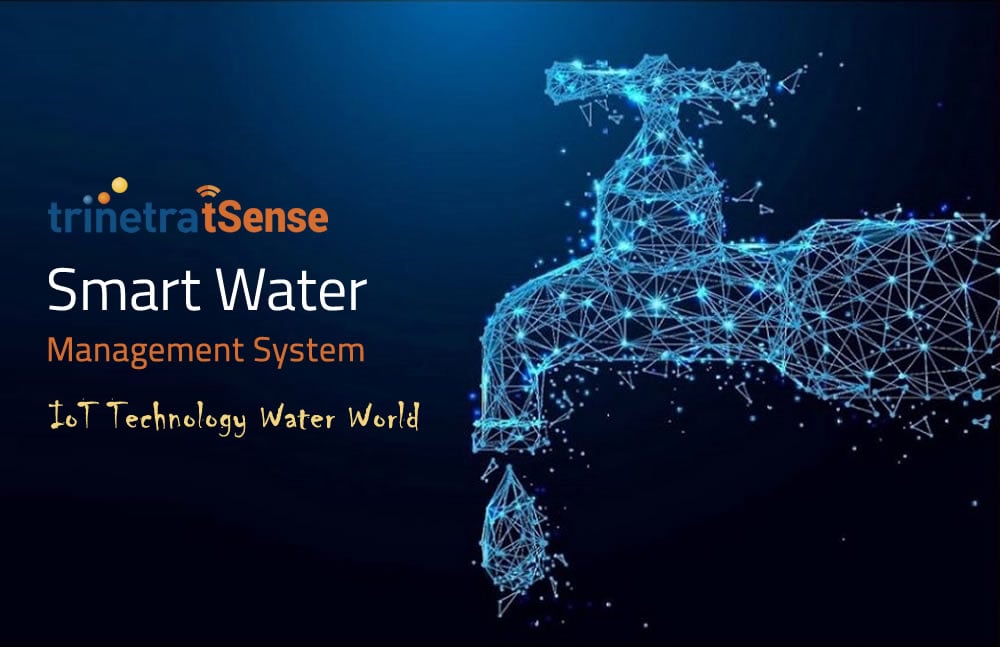
Smart water management systems consist of several essential components that work together to efficiently monitor and optimize water usage. These components include sensors, IoT devices, data analytics software, and actuators.
Sensors for Monitoring Water Usage and Quality
Sensors play a crucial role in smart water management systems by constantly monitoring water flow, pressure, temperature, and quality. These sensors provide real-time data that helps in detecting leaks, identifying areas of high consumption, and ensuring water quality standards are met. By collecting and analyzing this data, water utilities can make informed decisions to improve efficiency and reduce waste.
- Flow sensors measure the rate of water flow in pipes and help in detecting leaks or abnormalities in the system.
- Pressure sensors monitor water pressure levels to ensure optimal distribution and prevent pipe bursts.
- Water quality sensors analyze parameters such as pH levels, turbidity, and chlorine levels to maintain water quality standards.
By integrating sensors into smart water management systems, utilities can proactively address issues, reduce water loss, and improve overall system performance.
Integration of IoT Devices in Smart Water Management
IoT devices, such as smart meters and remote monitoring systems, are integrated into smart water management systems to enable remote data collection, analysis, and control. These devices communicate with sensors and data analytics software to provide real-time insights and alerts for efficient water management.
- Smart meters track water usage patterns and provide consumers with detailed information to promote water conservation.
- Remote monitoring systems enable operators to monitor and control water systems from a centralized location, optimizing operations and maintenance.
Through the integration of IoT devices, smart water management systems can enhance operational efficiency, reduce costs, and ensure sustainable water resource management.
Data Collection and Analysis: Smart Water Management Systems
Data collection in smart water management systems involves the gathering of information from various sensors and meters installed throughout the water distribution network. These sensors collect data on water flow, pressure, quality, and other relevant parameters in real-time.
This data is then transmitted to a centralized system where it is stored and analyzed. Data analysis plays a crucial role in optimizing water usage and detecting leaks in the system. By analyzing the collected data, water managers can identify patterns, trends, and anomalies that can help them make informed decisions to improve efficiency and reduce wastage.
Software for Data Analysis
Software plays a vital role in analyzing the vast amount of data generated by smart water management systems. Some examples of software commonly used for data analysis in smart water systems include:
- SCADA (Supervisory Control and Data Acquisition) systems: These systems collect real-time data from sensors and meters, allowing operators to monitor and control the water distribution network.
- Data analytics platforms: These platforms use advanced algorithms to analyze historical and real-time data, providing insights into water consumption patterns, trends, and potential leaks.
- Machine learning and AI tools: These tools can analyze data to predict water demand, optimize distribution networks, and detect anomalies that may indicate leaks or inefficiencies.
Water Conservation Strategies
Innovative water conservation strategies play a crucial role in sustainable water management, and smart water management systems are at the forefront of enabling these practices.
Real-time Monitoring for Efficient Water Use
Real-time monitoring provided by smart water management systems allows for a comprehensive understanding of water usage patterns. By tracking water consumption in real-time, users can identify areas of high consumption and implement targeted conservation measures.
- Real-time monitoring helps in detecting leaks and identifying inefficient water usage, allowing for prompt repairs and adjustments.
- By analyzing data from sensors and meters, smart systems can optimize water distribution and usage, reducing waste and promoting conservation.
- Users can set alerts and notifications for abnormal water usage, encouraging responsible water management practices.
Efficiency Improvement through Smart Systems, Smart water management systems
Smart water management systems play a crucial role in reducing water wastage and improving overall efficiency in water usage.
- Automated controls and scheduling features help in optimizing irrigation systems, ensuring that water is used only when necessary.
- Integration with weather data allows for adaptive watering schedules, reducing water usage during periods of high rainfall or humidity.
- Smart meters provide accurate and detailed information on water usage, enabling users to make informed decisions and adjustments to conserve water.
Challenges and Solutions
Implementing smart water management systems comes with its own set of challenges that need to be addressed for successful integration. These challenges often revolve around the complexity of the technology, data management, and cybersecurity threats. However, with proper solutions in place, these obstacles can be overcome to ensure efficient water management.
Common Challenges Faced
- Lack of Infrastructure: Many areas lack the necessary infrastructure to support smart water management systems, such as sensors and data networks.
- Data Integration: Integrating data from various sources can be challenging and may require complex systems to ensure accuracy.
- Cost Constraints: The initial cost of implementing smart technologies can be a barrier for many organizations, especially smaller ones.
- Resistance to Change: Some stakeholders may be resistant to adopting new technologies and processes, hindering progress.
Solutions to Overcome Obstacles
- Investing in Infrastructure: Governments and organizations can invest in building the necessary infrastructure to support smart water management systems.
- Advanced Data Analytics: Utilizing advanced data analytics tools can help streamline data integration processes and improve decision-making.
- Financial Incentives: Offering financial incentives or grants can help offset the initial costs associated with implementing smart technologies.
- Stakeholder Engagement: Engaging stakeholders in the decision-making process and providing training can help alleviate resistance to change.
Importance of Cybersecurity
Cybersecurity is crucial in protecting smart water systems from potential threats, such as data breaches and system malfunctions. Implementing robust cybersecurity measures, such as encryption and access controls, can help safeguard sensitive information and ensure the integrity of the system.
FAQ Section
How do smart water management systems benefit the environment?
Smart water management systems help in reducing water wastage, promoting conservation, and improving overall efficiency, leading to a more sustainable use of water resources.
What are the key challenges in implementing smart water management systems?
Common challenges include initial high costs, data security concerns, and the need for specialized skills for system maintenance and operation.
How can smart water management systems help in detecting leaks?
Through the use of sensors and data analysis, smart systems can pinpoint anomalies in water usage patterns, alerting users to potential leaks for timely intervention.



